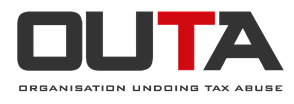Government’s two-week extension to the comment period on Expropriation Without Compensation is an insult to democracy
The undue haste smacks of electioneering and public participation in bad faith
Changes to tobacco laws have been discussed and commented on for over five years. The comment period on the latest iteration, the draft Control of Tobacco Products and Electronic Delivery Systems Bill, is 90 days. Yet, the comment period on the first real amendment to the Constitution, originally just 45 days, has now been extended to 60 days. One might ask: what are the politicians smoking?
The Constitution is not just a piece of paper. It is a document intended to protect citizens from the vagaries of government. While the Constitution has been amended before, the Bill of Rights has not. Expropriation without compensation would be the first amendment of a substantive character made to our highest law. It defies the spirit of democracy and is unacceptable for a debate that should warrant years of considered deliberation to be squeezed into 60 days for written comment. Government must reconsider and allow a minimum of six months, preferably 12, for debate, discussion and the lodging of submissions.
Restitution following apartheid’s land theft is essential. It is not necessary to change the Constitution to do this.
The High Level Panel reported in November 2017 that the State’s obligation to pay compensation for expropriation is not a constraint affecting land reform. More serious stumbling blocks have been corruption, diversion of the budget to elites, lack of political will, and lack of training and capacity.
The Panel, chaired by former President Kgalema Motlanthe, was established in 2015 by the Speakers’ Forum to review the implementation of laws passed since 1994.
Its view was that government has not made effective use of the expropriation powers it already has for land reform or the Constitution’s provisions that allow compensation below market value in particular circumstances. The Panel reported that the budget for land reform is at an all-time low of less than 0.4% of the national budget, with less than 0.1% set aside for land redistribution.
The Free Market Foundation (FMF), and many others, are concerned about the short comment period on one of the most important debates in post-1994 South Africa. Earlier this month, various civic and other organisations joined together to urge for an extension of the public comment period on Expropriation Without Compensation. These included: Accountability Now (IFAISA); Cliff Central; the FMF; Independent Entrepreneurship Group (Ineng); National African Federated Chamber of Commerce & Industry (NAFCOC); Organisation Undoing Tax Abuse (OUTA); and the South Africa National Consumer Union (SANCU).
While we welcome the fact that government is in principle aware of the fact that the comment period is inadequate for such a big issue, the subsequent two-week extension is just not good enough. Our constitutional democracy is more important than political expediency, and must be protected regardless of government’s supposed time constraints.
Ends
Note to the editor
See joint letter requesting extension below
Request for extension of public comment period on expropriation without compensation







Any amendment to the Bill of Rights – let alone the property rights provision – will be the most significant political event in South Africa since the Constitution itself was adopted in 1996. Whether one agrees with expropriation without compensation or not, the amount of time and intellectual effort that goes into this debate must be substantial. It is thus worrying that Parliament’s Constitutional Review Committee has given the public only 45 days (between 13 April and 31 May) to provide written comments on the resolution to pursue expropriation without compensation.
The Constitution itself was the product of a discussion that has been had since, at least, 1910, when the National Convention decided that South Africa would be subject to parliamentary sovereignty and not a justiciable, supreme constitution. Constitutionalists in the years between 1910 and 1993, when we adopted the interim Constitution, campaigned for decades for South Africa to adopt a bill of rights. The intellectual battle between those who believed in parliamentary sovereignty, and those who believed in constitutional supremacy, was fierce. The latter eventually succeeded, and today South Africa has a supreme constitution and a growing culture of constitutionalism.
While the Constitution has been amended before, the Bill of Rights has not. Expropriation without compensation would be the first amendment of a substantive character that will be made to our highest law. It is for this reason that we find it inappropriate and unacceptable for a debate warranting years to be squeezed into 45 days for written comment, and only until the end of August for the whole process to be wrapped up. Government must reconsider and allow a minimum of six months, preferably 12, for debate, discussion and the lodging of submissions.
The Parliamentary Monitoring Group’s 2017 Public Participation Survey notes that one of the biggest impediments to public participation in Parliament is lack of time; with 50% of respondents choosing this as the main obstacle. The report notes, “putting a submission together for Parliament takes a substantial amount of time and effort to prepare”, including research and formulation of arguments. This is taxing on small organisations and ordinary individuals who cannot spend all their available time engaging with Parliament. Furthermore, “some policy and legislative issues are more complex than others and require an even greater amount of work in formulating the submission”. The report concludes, “Effective and meaningful public participation is the backbone of legitimate democratic governance – while the constitutional and institutional design for the function is present, greater action is needed to better use this design”.
Public participation in policy- and law-making is mandated by the Constitution. Section 195(1)(e) requires that “the public must be encouraged to participate in policy-making”, and subsection (1)(g) requires that “transparency must be fostered by providing the public with timely, accessible and accurate information”. This latter provision applies to laws and regulations, as well as policy. Section 59(1)(a) and section 72(1)(a), respectively, require that Parliament must facilitate public involvement in the legislative process.
The recently-published Report of the High Level Panel on the Assessment of Key Legislation and the Acceleration of Fundamental Change problematised public participation in South Africa, stating that, “[T]here is a need to rethink the role of active citizens as co-drivers of change. The existing framework for public participation often only enables the public to participate as invited guests in processes as opposed to partners and co-creators”.
In 2010, the Public Service Commission reported that “the nature and extent of public participation is generally inadequate”, recommending that every government department introduce guidelines for staff to follow in fostering public participation.
Furthermore, in 2016, Professor Mokoko Sebola of the University of Limpopo eloquently wrote that “mere passive involvement of the people” does not amount to substantive public participation. The High Level Panel report echoed this by recommending that Parliament review all legislation that provides for public participation and ensure that those provisions are appropriately implemented, and, crucially, “where provision is made for the public to be consulted this consultation is meaningful and effective”. Thus, if government did not consider with an open mind the comments of the public, “no public participation can be claimed to have taken place”. Public participation, in other words, must be in good faith, and not merely a mechanical check-marked procedure.
Finally, draft policies, bills and regulations are required to include a socio-economic impact assessment (SEIA), as mandated in the Department of Planning, Monitoring and Evaluation (DPME)’s 2015 SEIAS Guidelines. Whether this is required for pre-legislative stages concerning constitutional amendments is irrelevant, as it would be prudent to conduct a SEIA in any case.
The DPME describes the aims of a SEIA as minimising the unintended consequences of the intervention, including unnecessary costs from implementation and compliance, as well as unanticipated outcomes. SEIAs also anticipate implementation risks and encourage measures to mitigate them. For an intervention as far-reaching as expropriation without compensation, an independently-conducted SEIA should be considered crucial.
Government recently exemplified good faith public participation with its updated edition of the Prevention and Combating of Hate Crimes and Hate Speech Bill. It judiciously considered the public’s engagement with the bill, did not rush it through the legislative process, and, as a result, produced a well-considered and relatively good piece of legislation. It will be a grave error if this manner of law-making is abandoned, especially when considering a constitutional amendment. We trust government will see the sense in granting a far longer period for public participation as it relates to expropriation without compensation.
Note: While several of the above-signed have already made a submission, or will make a submission before the deadline, they still feel the debate requires more time for serious consideration and debate.